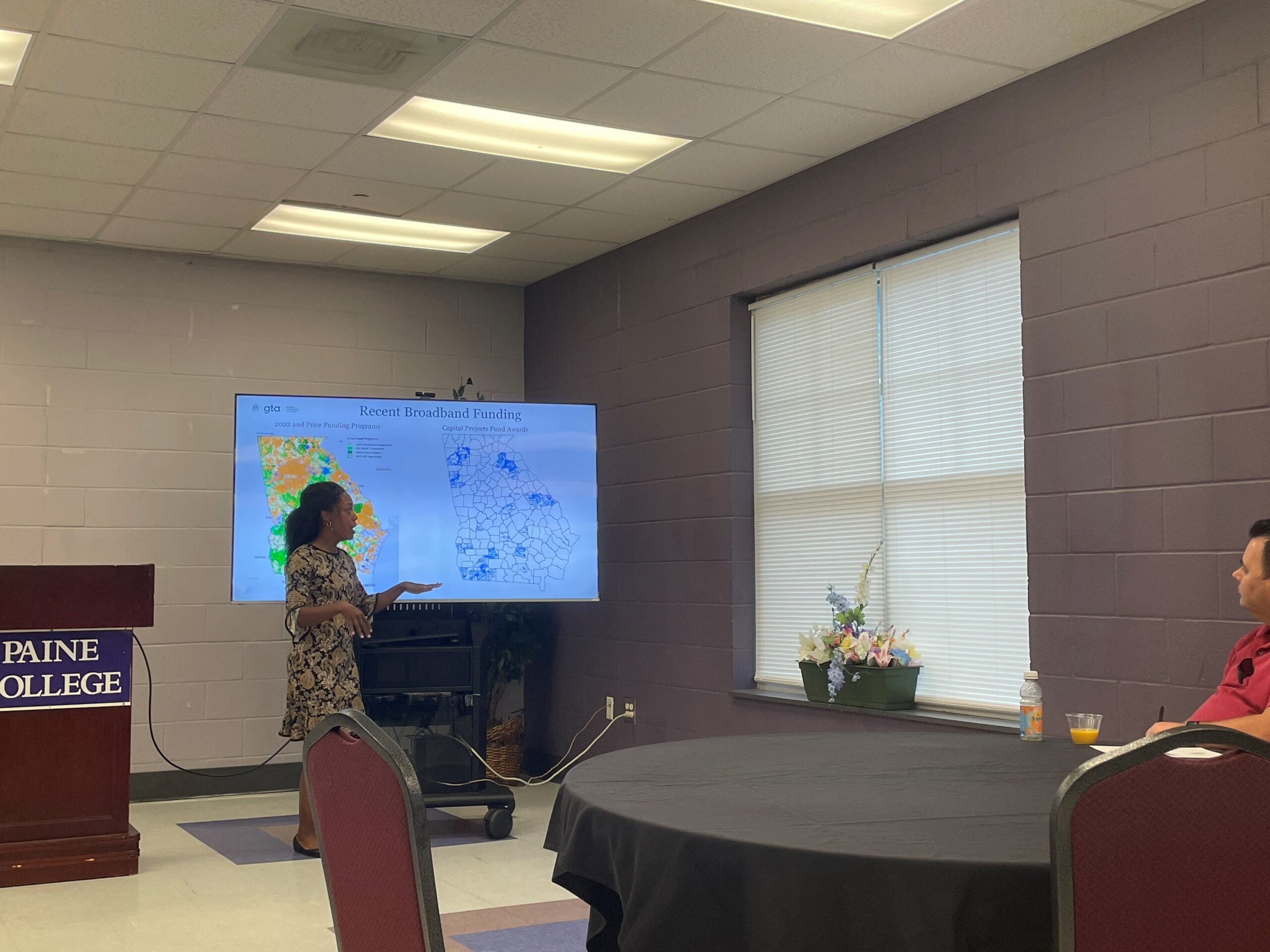Paine College hosted a stakeholder meeting on Wednesday morning, partnering with the Georgia Technology Authority (GTA) to present a talk on improving internet accessibility in local communities.
Oneisha Freeman, digital connectivity manager with GTA, came to Paine’s HEAL Complex to discuss the opportunities made available by the Digital Equity Act of 2021, and the Broadband Equity, Access and Deployment (BEAD) Program, both funded by the Bipartisan Infrastructure Law.
The Digital Equity Act provides more than $2 billion to establish three grant programs to promote digital equity — affordable, high-speed internet access.
“Equity is not about everybody having the same thing,” said Freeman, who is also a member of the GTA’s Broadband Team, which coordinates the Authority’s Broadband Committee to foster relationships between state agencies, local governments, industries and nonprofits to further deployment of broadband services in Georgia. “It’s about people having just what they specifically need. A senior citizen might be fine with a tablet, whereas a college student needs a laptop.”
One of the three programs the Digital Equity Act will back is the State Digital Equity Planning Grant, a $60 million formula grant to help states and territories build their own digital equity plans.
The State Digital Equity Capacity Program, effective in 2024, is to distribute over $1 billion over five years toward states implementing those equity plans in various projects.
The BEAD Program commits some $42 billion toward establishing broadband internet infrastructures, with each state receiving no less than $100 million.
The Broadbrand Team has already given several similar presentations throughout the state — including another in Augusta before, at the Georgia Cyber Innovation & Training Center, in February — shedding a spotlight on what states could have available, and encouraging collaborations between organizations, municipal governments, school districts and businesses to plan ahead how to deploy and manage the funds.
The aim of the funds is to manage efforts to not only build a high-speed internet infrastructure, but to facilitate accessibility, such as through internet service discount programs, digital skills service training and device loans.
The programs also have a focus on providing broadband accessibility to particular groups and communities, such as those with low-income, veterans, seniors, racial and ethnic minorities, residents of rural areas and people with disabilities.
“We can make sure in every comprehensive plan, we add a work program item and probably a community goal policy,” said Alex Smith, a regional planner with the Central Savannah River Area Regional Commission, reflecting on possible ways local government agencies could apply resources from the digital equity programs.
J.R. Henderson, a member of Paine’s board of trustees, suggested a version of the Department of Labor’s Disability Navigator program geared toward assisting underserved residents — such as seniors or the disabled — in accessing internet and using devices.
“They were a kind of a call center,” said Henderson. “A person can call and say, ‘Hey, I live here, I’m interested in this,’ and they can tell them about services, hold their hands and walk them through processes that they probably would not be able to get through.”
Freeman expects Georgia will know how much funding for broadband expansion it will receive by the end of June. In the meantime, she said, she and the Broadband Team are prioritizing raising awareness, so that Georgia communities begin strategizing.
“We’re trying to be proactive, not reactive,” Freeman said. “But the time is gonna go by so fast and I don’t want people to see the grant for the first time, or hear about it for the first time, when the grant opportunity comes up. I would like our community leaders to be hearing it for the fifth time.”
For more information about the Georgia Technology Authority’s broadband expansion and outreach efforts, visit https://gta.georgia.gov/broadband.
Skyler Q. Andrews is a staff reporter for The Augusta Press. Reach him at skyler@theaugustapress.com.










